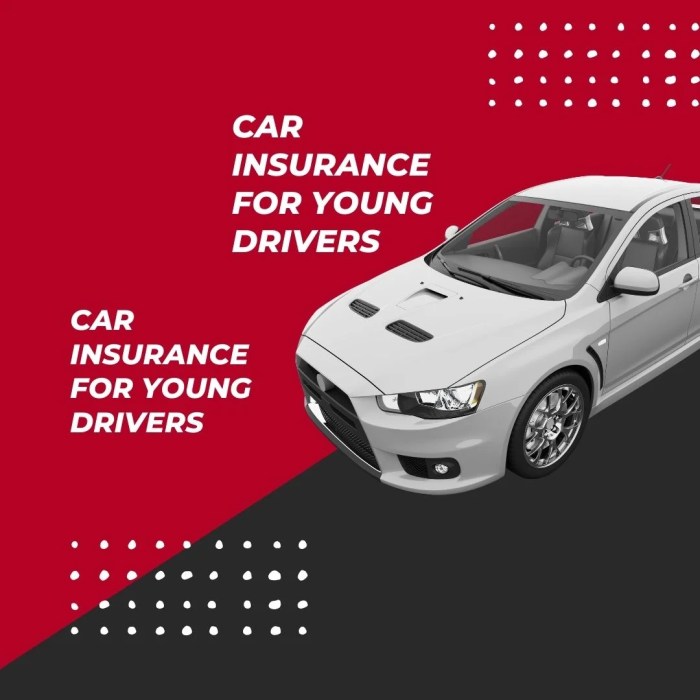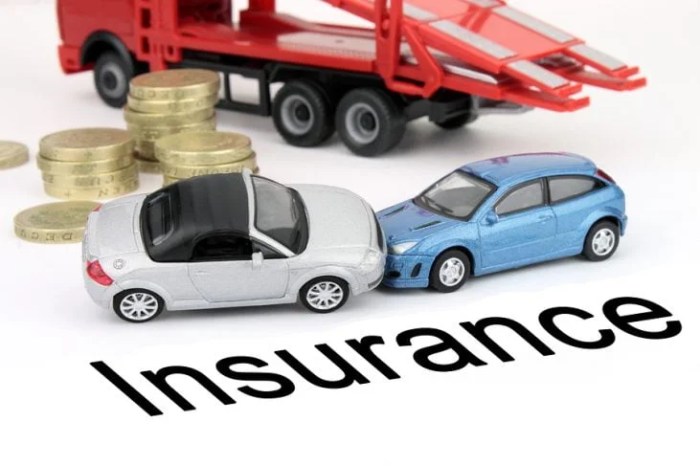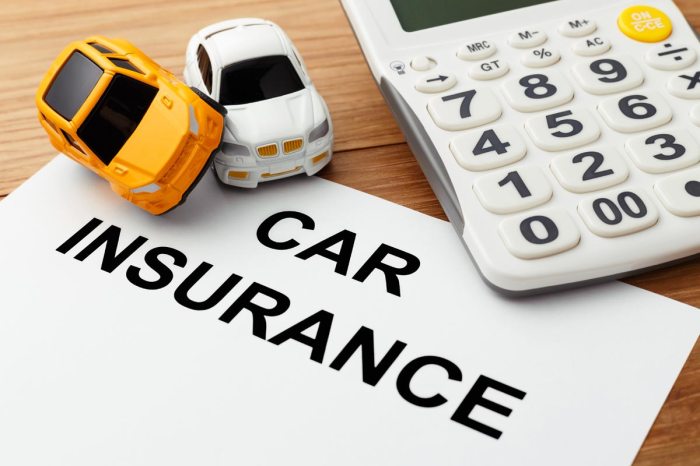What are the best car insurance quotes for high-risk drivers? This question plagues many drivers who find themselves facing higher premiums due to factors like past accidents, traffic violations, or even their age. The good news is, finding affordable insurance is possible, even if you’re considered high-risk.
This guide will walk you through the ins and outs of navigating the insurance landscape as a high-risk driver, equipping you with the knowledge and strategies to secure the best possible rates.
Understanding why insurance companies classify certain drivers as “high-risk” is crucial. Factors like your driving history, age, credit score, and even the type of vehicle you drive all play a role in determining your premium. But don’t worry, we’ll explore these factors in detail and uncover ways you can potentially lower your costs.
Understanding High-Risk Drivers: What Are The Best Car Insurance Quotes For High-risk Drivers?
Insurance companies carefully assess the risk associated with each driver, and those deemed “high-risk” often face higher premiums. This assessment is based on a variety of factors that indicate a higher likelihood of accidents or claims.
Factors Considered by Insurance Companies
Insurance companies use a complex system to determine the risk associated with a driver. This system involves considering numerous factors, including:
- Driving History:This is perhaps the most crucial factor. A history of accidents, traffic violations, or DUI convictions significantly increases the risk profile. For example, a driver with multiple speeding tickets is considered more likely to engage in risky driving behaviors, leading to higher premiums.
- Age and Experience:Younger drivers, particularly those under 25, are statistically more likely to be involved in accidents due to lack of experience and higher risk-taking behavior. Conversely, drivers over a certain age may face higher premiums due to potential health concerns that could affect their driving ability.
- Vehicle Type and Usage:The type of vehicle you drive and how you use it also influence your risk profile. Sports cars and high-performance vehicles are often associated with higher risk due to their speed and potential for accidents. Similarly, drivers who commute long distances or use their vehicles for business purposes may be considered higher risk due to increased exposure to potential hazards.
- Location:Where you live plays a role in determining your risk. Areas with high traffic density or a higher rate of accidents tend to have higher insurance premiums. Additionally, urban areas with more potential for theft or vandalism can lead to higher comprehensive and collision coverage costs.
- Credit Score:While seemingly unrelated, your credit score can be used as an indicator of your financial responsibility. Insurance companies may use your credit score to assess your overall risk profile, as individuals with poor credit may be more likely to default on payments.
Factors Affecting Insurance Quotes
Insurance companies use a variety of factors to determine your car insurance rates. These factors are designed to assess your risk of being involved in an accident and the potential cost of covering any damages. Understanding these factors can help you make informed decisions about your coverage and potentially save money on your premiums.
Age
Age is a significant factor in car insurance rates. Younger drivers, especially those under 25, are statistically more likely to be involved in accidents. This is due to factors such as inexperience, lack of driving skills, and higher risk-taking behaviors.
Finding affordable car insurance as a high-risk driver can feel like searching for a needle in a haystack, but don’t despair! Just like new drivers face their own insurance challenges, finding the best car insurance quotes for new drivers requires research and comparison.
However, with a bit of effort, you can find a policy that fits your needs and budget, even if your driving history isn’t spotless.
Insurance companies reflect this higher risk by charging higher premiums to younger drivers. As drivers gain experience and age, their premiums tend to decrease.
Driving History
Your driving history is a critical factor in determining your car insurance rates. A clean driving record with no accidents or traffic violations will result in lower premiums. Conversely, a history of accidents, speeding tickets, or DUI convictions will significantly increase your rates.
Insurance companies view these incidents as indicators of higher risk and adjust premiums accordingly.
Credit Score
While it might seem counterintuitive, your credit score can impact your car insurance rates. Insurance companies use credit scores as a proxy for financial responsibility. A good credit score suggests you are a responsible individual who is more likely to pay your premiums on time.
Conversely, a poor credit score might indicate a higher risk of financial instability, potentially leading to higher insurance rates.
Vehicle Type
The type of vehicle you drive also plays a role in your insurance premiums. Luxury cars, sports cars, and high-performance vehicles are generally more expensive to repair or replace in case of an accident. As a result, insurance companies charge higher premiums for these types of vehicles.
Conversely, smaller, less expensive cars typically have lower insurance rates.
Location
Your location can influence your car insurance rates due to variations in factors such as traffic density, crime rates, and weather conditions. Urban areas with heavy traffic and higher crime rates tend to have higher insurance premiums compared to rural areas with lower traffic and crime rates.
Similarly, areas prone to severe weather events, such as hurricanes or tornadoes, might have higher insurance rates to cover potential damage.
Coverage Options
The type and amount of coverage you choose will also affect your premiums. Comprehensive and collision coverage, which protect you from damage caused by accidents, theft, or natural disasters, are typically more expensive than liability coverage, which only covers damages to other parties.
Choosing a higher deductible, which is the amount you pay out-of-pocket before insurance kicks in, can help reduce your premiums.
State Regulations
State regulations also play a role in car insurance rates. Each state has its own set of laws governing insurance requirements, coverage options, and pricing practices. These regulations can influence the overall cost of car insurance in a particular state.
Insurance Company Policies
Insurance companies have their own policies and underwriting practices that influence their pricing. Some companies might focus on specific customer demographics or offer discounts for certain driving habits, such as safe driving courses or telematics devices that track driving behavior.
Understanding the policies of different insurance companies can help you find the best rates for your specific needs.
Finding the Best Quotes
Now that you understand the factors that influence your insurance rates, let’s get down to the business of finding the best quotes! It’s all about comparing apples to apples to make sure you’re getting the most competitive price for the coverage you need.
Comparing Quotes from Multiple Insurers
The key to finding the best car insurance quote for high-risk drivers is to get quotes from multiple insurers. This allows you to compare prices, coverage options, and discounts, ultimately finding the best value for your money.Here’s a step-by-step guide to obtaining quotes from different insurers:
- Gather Your Information:Before you start shopping for quotes, gather all the necessary information. This includes your driving history, vehicle information, and personal details like your age, address, and contact information. Having this information readily available will streamline the quoting process.
- Use Online Comparison Tools:Online comparison websites like Policygenius, The Zebra, and Insurance.com are excellent starting points. These platforms allow you to enter your information once and receive quotes from multiple insurers simultaneously. This saves you time and effort compared to contacting each insurer individually.
- Contact Insurers Directly:While online comparison tools are helpful, it’s also a good idea to contact insurers directly. This allows you to ask specific questions about their policies and get a more personalized quote. You can find contact information for insurers on their websites or through online directories.
- Compare Quotes Carefully:Once you have a few quotes, compare them carefully. Pay attention to the coverage amounts, deductibles, and premiums. Make sure you understand the terms and conditions of each policy before making a decision.
- Negotiate for a Better Price:Don’t be afraid to negotiate for a better price. Many insurers are willing to offer discounts to high-risk drivers who are willing to shop around. You can mention the quotes you received from other insurers to see if they can match or beat them.
Strategies for Reducing Premiums

As a high-risk driver, you may feel like you’re stuck with high insurance premiums. But don’t despair! There are several strategies you can employ to lower your costs. By taking proactive steps and demonstrating your commitment to responsible driving, you can potentially save money on your car insurance.
Defensive Driving Courses
Taking a defensive driving course can be a smart move for high-risk drivers. These courses teach valuable techniques for avoiding accidents and staying safe on the road. Completing a course can demonstrate to insurers that you’re committed to improving your driving skills and reducing your risk.
In addition to the potential for lower premiums, you’ll gain knowledge and skills that could help you avoid accidents altogether.
Safety Features
Modern vehicles are equipped with advanced safety features that can significantly reduce the risk of accidents. Features like anti-lock brakes, electronic stability control, and lane departure warning systems can help you maintain control of your vehicle and avoid collisions. When you purchase a car with these features, your insurer may recognize the reduced risk and offer you a lower premium.
Bundling Insurance Policies
Bundling your car insurance with other policies, such as homeowners or renters insurance, can often result in significant discounts. Insurers typically offer discounts for bundling multiple policies, as it simplifies their administrative processes and increases their customer loyalty.
Maintaining a Clean Driving Record
The most important factor in determining your car insurance premium is your driving record. Avoiding accidents and traffic violations is crucial for keeping your premiums low. By driving safely and responsibly, you can demonstrate to insurers that you’re a low-risk driver, which could lead to lower premiums.
Specialized Insurance Options

High-risk drivers often face challenges finding affordable car insurance. Fortunately, specialized insurance programs cater to their unique needs, offering alternative solutions. These programs often have stricter underwriting criteria and may require higher premiums, but they provide access to coverage that traditional insurers might not offer.
Alternative Insurance Providers, What are the best car insurance quotes for high-risk drivers?
Alternative insurance providers often specialize in high-risk drivers. These providers may have more lenient underwriting guidelines and consider factors beyond just driving history, such as credit score and employment status. Here are some advantages and disadvantages of alternative insurance providers:
- Advantages:
- Greater access to coverage for high-risk drivers.
- Potentially lower premiums compared to traditional insurers.
- Flexible payment options and customized policies.
- Disadvantages:
- May have higher premiums than traditional insurers in some cases.
- Limited availability in certain geographic areas.
- Potentially lower customer service standards.
Specialized Coverage Options
Specialized coverage options cater to the specific needs of high-risk drivers. These options can provide additional protection and financial security in situations that traditional policies might not cover. Examples of specialized coverage options include:
- Non-Owner Car Insurance: This coverage protects drivers who don’t own a vehicle but regularly drive borrowed or rented cars. It provides liability coverage in case of an accident while driving someone else’s car.
- Ride-Sharing Insurance: This coverage is designed for individuals who drive for ride-sharing platforms like Uber or Lyft. It provides additional liability coverage and protection during rides.
- High-Risk Driver Programs: Some insurance companies offer specialized programs designed for high-risk drivers, such as those with multiple driving violations or a history of accidents. These programs may have stricter underwriting requirements but offer coverage tailored to the driver’s unique circumstances.
Tips for Choosing the Right Insurance

Now that you’ve gathered several quotes, it’s time to compare them carefully and select the policy that best suits your needs and budget. This is where understanding the nuances of each policy becomes crucial.
Coverage Limits and Deductibles
Before making a decision, you must understand the coverage limits and deductibles offered by each policy. Coverage limits determine the maximum amount your insurer will pay for a covered claim. Deductibles are the amount you pay out-of-pocket before your insurance kicks in.
For example, a policy with a $500 deductible means you’ll pay the first $500 of any claim yourself, and your insurer will cover the rest, up to the policy’s coverage limit.
Reading Policy Terms and Conditions
Don’t just skim the surface; delve into the details of each policy’s terms and conditions. Pay attention to exclusions, which are situations where your insurance won’t cover you. Also, check for any specific requirements or limitations, such as driving restrictions or limitations on certain types of coverage.
Factors to Consider When Selecting an Insurance Policy
Here’s a checklist of factors to consider when comparing car insurance policies:
- Coverage Limits:Ensure the coverage limits are sufficient to protect you in the event of an accident. Consider the value of your car, the potential costs of medical bills, and other potential expenses.
- Deductibles:Higher deductibles typically result in lower premiums. Choose a deductible you can comfortably afford in case of an accident.
- Exclusions:Understand what situations are not covered by the policy. Look for policies with fewer exclusions, or at least exclusions that align with your driving habits and circumstances.
- Premiums:Compare the monthly or annual premiums across different policies and consider the value you’re getting for the price.
- Discounts:Explore potential discounts offered by the insurer, such as good driver discounts, safe driving courses, or bundling your car insurance with other types of insurance.
- Customer Service:Read reviews and inquire about the insurer’s customer service reputation. You want an insurer that is responsive and helpful when you need them.
- Financial Stability:Check the insurer’s financial stability to ensure they can pay out claims if needed. You can find this information on rating agencies like AM Best.
Final Thoughts
Finding the best car insurance quotes as a high-risk driver requires a strategic approach. By understanding the factors that influence your premiums, actively seeking out multiple quotes, and implementing cost-saving strategies, you can navigate this challenging landscape and secure a policy that fits your needs and budget.
Remember, a little research and proactive action can go a long way in finding the right insurance protection without breaking the bank.
Question Bank
What are some common reasons why drivers are considered high-risk?
Drivers with a history of accidents, traffic violations, DUI convictions, or a young age are often considered high-risk. Insurance companies view these factors as indicators of increased potential for future claims.
Can I get car insurance if I have a poor credit score?
Yes, you can still get car insurance, but your credit score might influence your premium. Insurance companies often use credit scores as a proxy for risk, so a lower score could lead to higher rates.
Are there any specific insurance companies that cater to high-risk drivers?
Yes, there are specialized insurance providers who focus on insuring high-risk drivers. These companies may have more lenient underwriting criteria and offer tailored coverage options.